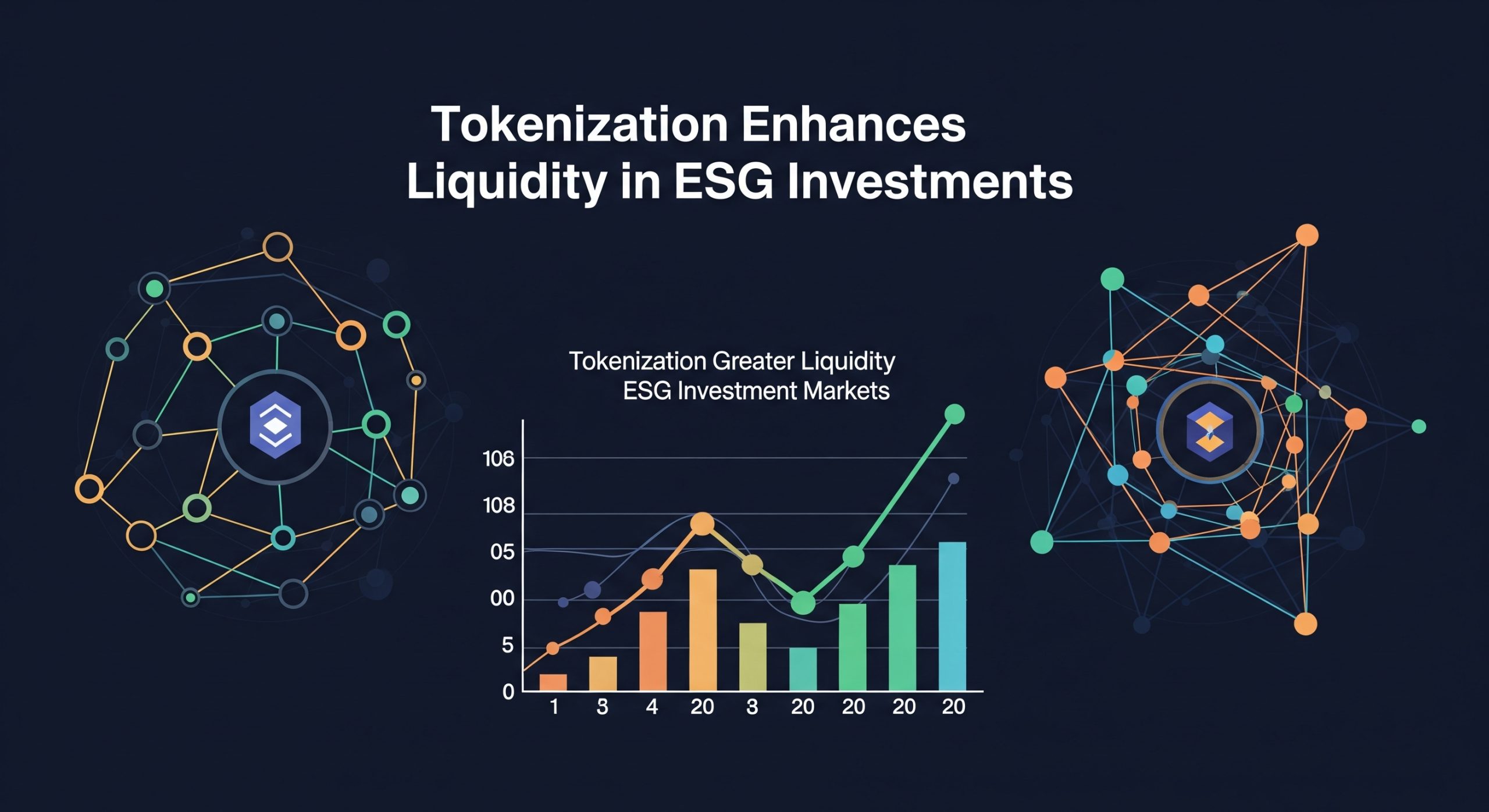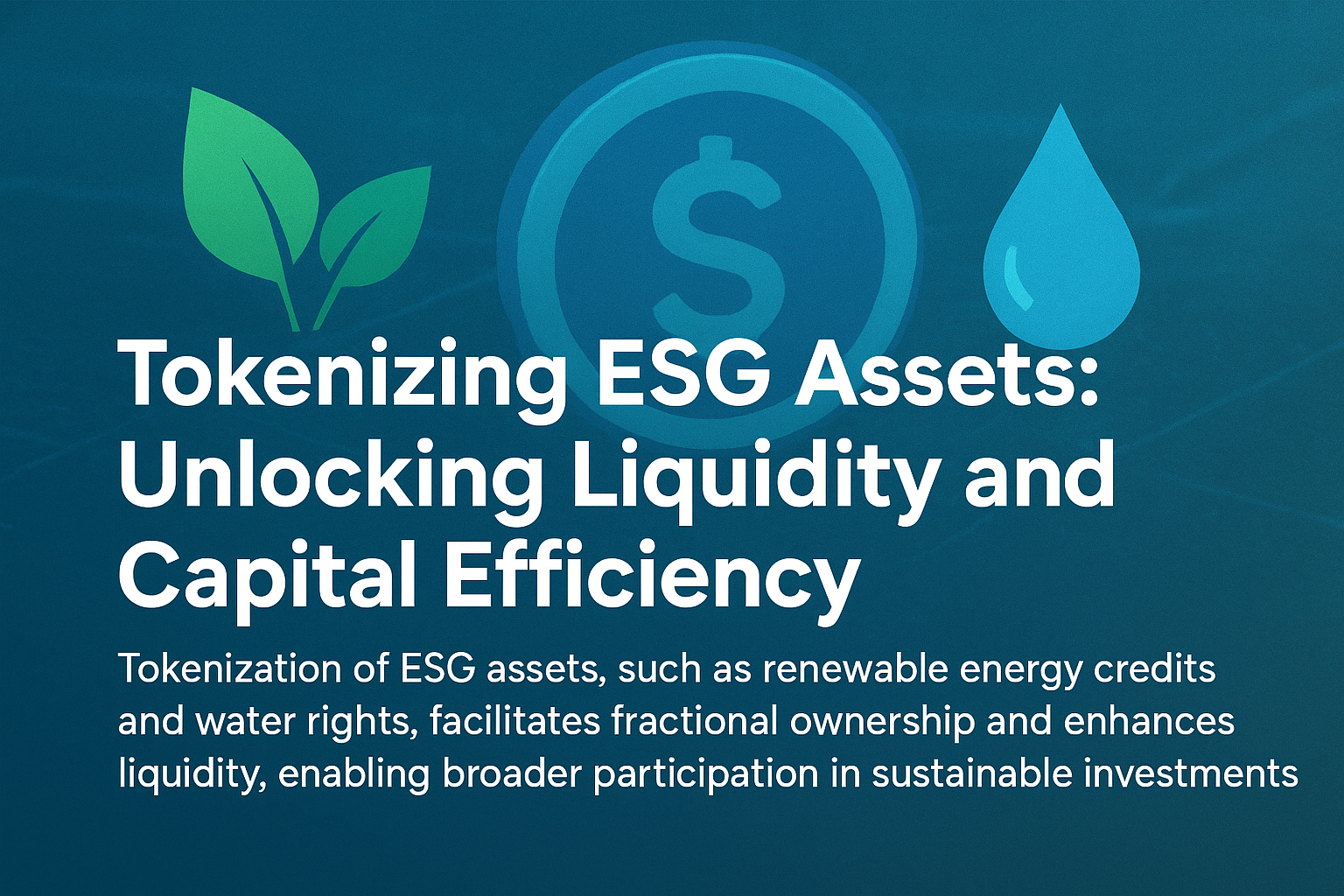The world of sustainable investing is undergoing a remarkable transformation, powered by emerging technologies that promise to reshape capital markets. One of the most promising innovations in this domain is the tokenization of ESG (Environmental, Social, and Governance) assets — a development that is not just a buzzword but a genuine game-changer in how capital flows into sustainable initiatives.
Unlocking Liquidity in Sustainable Investments
ESG investments have traditionally been associated with illiquidity. Large-scale green infrastructure, renewable energy plants, and social impact projects often require long-term commitments with limited exit options for investors. However, tokenization is rapidly dismantling these barriers.
By converting ESG assets into blockchain-based digital tokens, investors can now own fractional shares in previously illiquid projects. This approach dramatically increases liquidity by enabling tokens to be traded on secondary markets — something that was impractical or impossible with traditional structures. Investors can buy, sell, or transfer ownership of these tokens swiftly and securely, without being tied down for decades.
Capital Efficiency and Transparency
Tokenization doesn’t just enhance liquidity; it also optimizes capital efficiency. ESG asset tokens can be programmed with smart contracts to automate compliance, reporting, and even dividend distributions. This reduces administrative overhead and operational costs, allowing more capital to flow directly into impact-driven initiatives rather than intermediaries.
Furthermore, blockchain’s inherent transparency is a perfect fit for ESG investments, where accountability is paramount. Investors can verify, in real-time, how their funds are allocated and whether projects meet predefined sustainability benchmarks. This level of insight builds trust and can attract a broader base of institutional and retail investors alike.
Scalability and Global Reach
Perhaps one of the most exciting aspects of tokenizing ESG assets is scalability. Tokenization platforms can facilitate the packaging of diverse assets — from solar farms in Africa to social housing projects in Europe — and make them accessible to global investors with just a few clicks. The technology allows for seamless cross-border participation, making it easier for capital to reach projects that need it most, regardless of geographic location.
Challenges and The Road Ahead
Despite its advantages, ESG asset tokenization is not without challenges. Regulatory frameworks are still evolving, and global standardization is necessary to ensure widespread adoption. Cybersecurity risks, market fragmentation, and technological literacy gaps also need to be addressed.
Nonetheless, the momentum is undeniable. Platforms like Investax.io are leading the charge in integrating tokenization with ESG principles, offering innovative tools for structuring and trading sustainable assets. As technology and regulation converge, tokenization could soon become the backbone of a more inclusive and efficient ESG investment ecosystem.




